Filter by
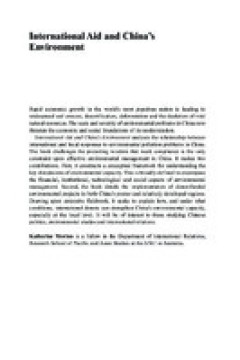
International Aid and China's Environment
Rapid economic growth in the world's most populous nation is leading to widespread soil erosion, desertification, deforestation and the depletion of vital natural resources. The scale and severity of environmental problems in China now threaten the economic and social foundations of its modernization. Using case studies, Morton analyzes the relationship between international and local responses…
- Edition
- -
- ISBN/ISSN
- 9781134183111
- Collation
- -
- Series Title
- -
- Call Number
- -
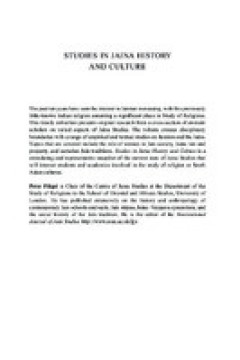
Studies in Jaina History and Culture
The last ten years have seen interest in Jainism increasing, with this previously little-known Indian religion assuming a significant place in religious studies. Studies in Jaina History and Culture breaks new ground by investigating the doctrinal differences and debates amongst the Jains rather than presenting Jainism as a seamless whole whose doctrinal core has remained virtually unchanged th…
- Edition
- -
- ISBN/ISSN
- 9781134235476
- Collation
- -
- Series Title
- -
- Call Number
- -
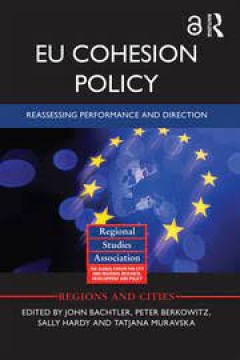
EU Cohesion Policy
The Open Access version of this book, available at http://www.tandfebooks.com/doi/view/10.4324/9781315401867, has been made available under a Creative Commons Attribution-Non Commercial-No Derivatives 3.0 license. This book brings together academics, members of European institutions, and regional and national level policymakers in order to assess the performance and direction of EU Cohesion pol…
- Edition
- -
- ISBN/ISSN
- 9781315401836
- Collation
- -
- Series Title
- -
- Call Number
- -
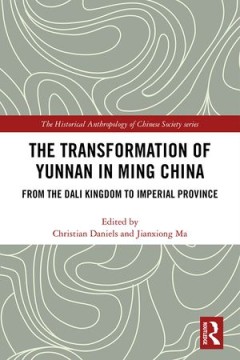
The Transformation of Yunnan in Ming China: From the Dali Kingdom to Imperial…
This book examines how the Ming state transformed the multi-ethnic society of Yunnan into a province. Yunnan had remained outside the ambit of central government when ruled by the Dali kingdom, 937-1253, and its foundation as a province by the Yuan regime in 1276 did not disrupt Dali kingdom style political, social and religious institutions. It was the Ming state in the fourteenth to seventeen…
- Edition
- -
- ISBN/ISSN
- 9781000762112
- Collation
- -
- Series Title
- -
- Call Number
- 300.7 TRA t
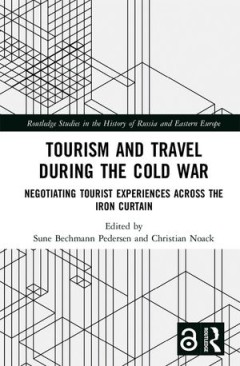
Tourism and Travel during the Cold War: Negotiating Tourist Experiences acros…
The Iron Curtain was not an impenetrable divide, and contacts between East and West took place regularly and on various levels throughout the Cold War. This book explores how the European tourist industry transcended the ideological fault lines and the communist states attracted an ever-increasing number of Western tourists. Based on extensive original research, it examines the ramifications of…
- Edition
- -
- ISBN/ISSN
- -
- Collation
- -
- Series Title
- -
- Call Number
- 338.4 TOU t
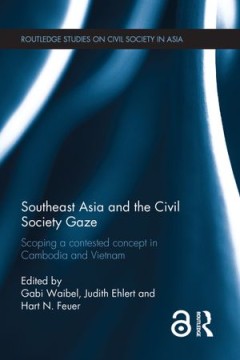
Southeast Asia and the Civil Society Gaze: Scoping a Contested Concept in Cam…
As developing countries with recent histories of isolation and extreme poverty, followed by restoration and reform, both Cambodia and Vietnam have seen new opportunities and demands for non-state actors to engage in and manage the effects of rapid socio-economic transformation. This book examines how in both countries, civil society actors and the state manage their relationship to one another …
- Edition
- -
- ISBN/ISSN
- 9781134634293
- Collation
- -
- Series Title
- -
- Call Number
- 320.17 SOU s
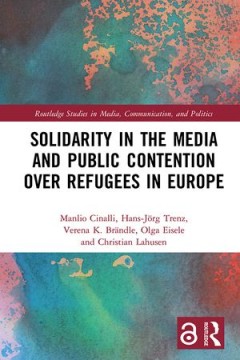
Solidarity in the Media and Public Contention over Refugees in Europe
This book examines the ‘European refugee crisis’, offering an in-depth comparative analysis of how public attitudes towards refugees and humanitarian dispositions are shaped by political news coverage. An international team of authors address the role of the media in contesting solidarity towards refugees from a variety of disciplinary perspectives. Focusing on the public sphere, t…
- Edition
- -
- ISBN/ISSN
- 9781000370485
- Collation
- -
- Series Title
- -
- Call Number
- 302.23 SOL s
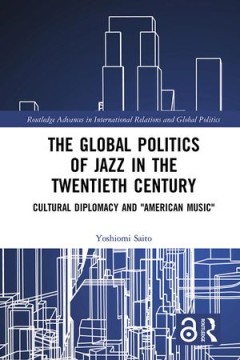
The Global Politics of Jazz in the Twentieth Century: Cultural Diplomacy and …
From the mid-1950s to the late 1970s, jazz was harnessed as America’s "sonic weapon" to promote an image to the world of a free and democratic America. Dizzy Gillespie, Dave Brubeck, Duke Ellington and other well-known jazz musicians were sent around the world – including to an array of Communist countries – as "jazz ambassadors" in order to mitigate the negative image associated with dom…
- Edition
- -
- ISBN/ISSN
- 9780429595363
- Collation
- -
- Series Title
- -
- Call Number
- 780
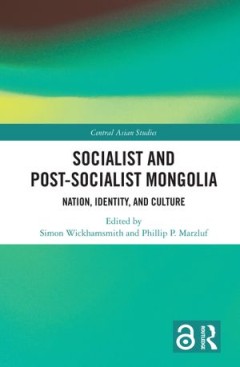
Socialist and Post–Socialist Mongolia: Nation, Identity, and Culture
This book re-examines the origins of modern Mongolian nationalism, discussing nation building as sponsored by the socialist Mongolian People’s Revolutionary Party and the Soviet Union and emphasizing in particular the role of the arts and the humanities. It considers the politics and society of the early revolutionary period and assesses the ways in which ideas about nationhood were construct…
- Edition
- -
- ISBN/ISSN
- 9781000337150
- Collation
- -
- Series Title
- -
- Call Number
- 305.8 SOC s
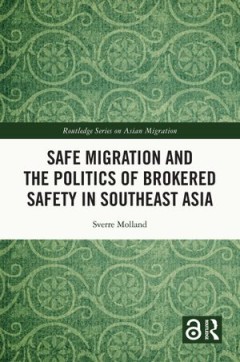
Safe Migration and the Politics of Brokered Safety in Southeast Asia
The book investigates how the United Nations, governments, and aid agencies mobilise and instrumentalise migration policies and programmes through a discourse of safe migration. Since the early 2000s, numerous non-governmental organizations (NGOs), UN agencies, and governments have warmed to the concept of safe migration, often within a context of anti-trafficking interventions. Yet, both the p…
- Edition
- -
- ISBN/ISSN
- 9781000430745
- Collation
- -
- Series Title
- -
- Call Number
- 305.8
 Computer Science, Information & General Works
Computer Science, Information & General Works  Philosophy & Psychology
Philosophy & Psychology  Religion
Religion  Social Sciences
Social Sciences  Language
Language  Pure Science
Pure Science  Applied Sciences
Applied Sciences  Art & Recreation
Art & Recreation  Literature
Literature  History & Geography
History & Geography